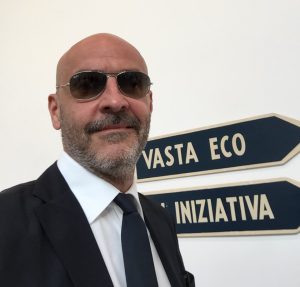Programma corso di Storia economica (a.a. 2019-2020), matricole 00-49
Storia economica
60 ore, 8 crediti
Inizio delle lezioni: 24 febbraio 2020
Obiettivo del corso è illustrare, con uso appropriato delle categorie economiche, il processo storico dello sviluppo economico contemporaneo. Il corso focalizza l’attenzione sulla storia economica del mondo concentrando l’attenzione sull’Europa, ma allargando la trattazione a tutte le aree geografiche. Il corso si articola su una esposizione che unisce teoria economica, descrizione di eventi e misura di fenomeni economici.
Testi d’esame:
D. Acemoglu, D. Laibson, J. List, Principi di Economia politica. Teoria ed evidenza empirica, Milano-Torino, Pearson, 2016, capp. 19, 20 (sino a p. 508), 21 (sino a p. 554), 22.
R.C. Allen, Storia economica globale, Bologna, Il Mulino, 2013.
K.G. Persson, Storia economica d’Europa. Conoscenza, istituzioni e crescita dal 600 d.C. a oggi, Milano, Apogeo, 2011.
Modalità di esame: sono previste una prova intermedia in itinere e una prova di fine corso. Tutte le prove consistono in un esame scritto comprendente domande a scelta multipla e domande aperte.
Orari: lunedì, martedì e mercoledì 12-14 (Aula Caparrelli B).
Economic History course for Phd in Economics (16 hours)
Wednesday 19nd February 2020: 16-18
Francisco Beltran Tapia (Norwegian University of Science and Technology)
Sex ratios and missing girls in history
Topic: Inequality
Wednesday 25th March 2020: 16-18
Joerg Baten (University of Tuebingen)
Girl power Generates Superstars in Long-term Development: Female Autonomy and Human Capital Formation in Early Modern Europe
Topic: Gender inequality
Thursday 30th April 2020: 11-13
Michelangelo Vasta
Three different tribes: how the relationship between economics and economic history has evolved in the 21stcentury
Topic: Methodology
Friday 8th May 2020: 14-16
Gabriele Cappelli
Selected topics in Economic history
Topic: Methodology
Thursday 14th May 2020: 11-13
Gabriele Cappelli
Still a long way to go: decomposing income inequality across Italy’s regions, 1871–2011
Topic: Regional studies
Friday 15th May 2020: 14-16
Michelangelo Vasta
Can school centralization foster human capital accumulation? A quasi-experiment from early-20th-century Italy
Topic: Human capital
Thursday 21th May 2020: 11-13
Gabriele Cappelli
Fortune is told by women: female teaching and the rise of mass schooling in Italy and Spain, c. 1860 – 1920
Topic: Education
Wednesday 27th May 2020: 11-13
Michelangelo Vasta
TBA
Topic:
The “rules of the game” of the course are the following. First of all the course requires your active role in the discussion of the seminars. What I mean is that you make direct questions to the speakers during the seminars. Moreover, each student must write one extended Review Report (RR) for one of the paper presented. The RR should be articulated as follow: i) discuss context and research questions; ii) assess source, historical material and data; iii) provide a discussion of approach and methods; iv) suggest improvements and refinements for the analysis. Finally, all students have to organize themselves in groups (2 students, max 3) and prepare an Economic History Research Project (RP) which must contain: i) a well-defined research question; ii) sources to be used; iii) methods; iv) conclusions.
Final evaluation will be based on class participation (25%) and on the quality of RRs (25%) and RP (50%).

